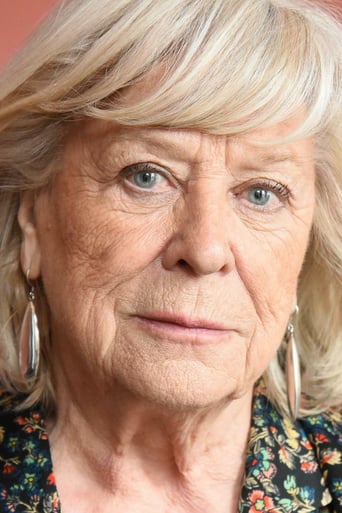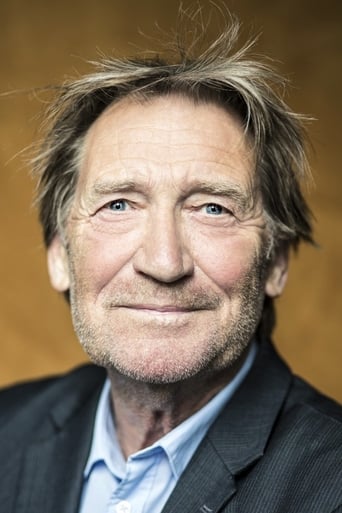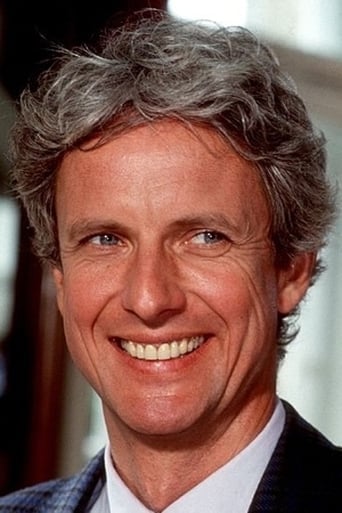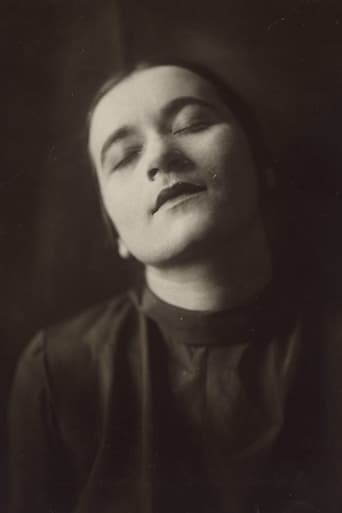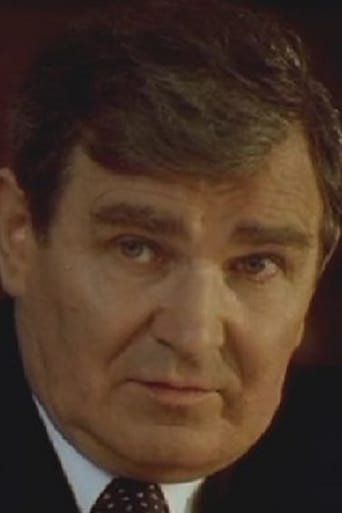Peereddi
I was totally surprised at how great this film.You could feel your paranoia rise as the film went on and as you gradually learned the details of the real situation.
Catangro
After playing with our expectations, this turns out to be a very different sort of film.
Asad Almond
A clunky actioner with a handful of cool moments.
Sienna-Rose Mclaughlin
The movie really just wants to entertain people.
Einar The Lonely
Volker Schlöndorff is one of the most overrated directors of the New German Cinema school, and that shows in some of his most celebrated films, including THE TIN DRUM. His adaptions of literature seldom reach beyond mere illustration and even so Schlöndorff never seems to know what the point of his stories actually is.DER FANGSCHUSS/COUP DE GRACE is one of his more watchable works, which might be largely due the fine, atmospheric B/W photography. But compared to Margarete Yourcenar's novel Schlöndorff's inability to adopt a proper point of view becomes apparent. The novel is told in first person by the main character Erich von Lhomond; yet in Schlöndorff's version it is never clear if it his or Sophie's story. The erotic obsession Sophie has for Erich, mixed with political adversity, which is so crucial for the story is almost completely missing in the film. It is rather supposed than being actually shown and acted out. Unless you have not read the book you cannot measure Schlöndorff's failure to convey what's actually going on between these two.The greatest flaw is the miscasting of the director's wife Margarethe von Trotta, who is not only a mediocre actress but who is visibly at least 15 years too old for her character, leaving it pointless and unbelievable. Trotta sucks so badly in her part that it makes the whole film a pain to watch every time she appears on screen.One of the few truly enjoyable moments is the final screen appearance of legendary actress and Pabst veteran Valeska Gert (THE JOYLESS STREET) in an eccentric supporting part - even though her black dyed hair, heavy make-up and curious antics make her hardly a convincing Baltic German landowner lady of the early 20th century.DER FANGSCHUSS is a pretentious misunderstanding, like most of Schlöndorff's work.
MartinHafer
The film begins in Latvia just after WWI. Being a history teacher, I knew that multinational troops occupied much of Russia during this time. There was serious concern about the spread of Bolshevism and the troops were there ostensibly to protect their nations' interests. However, some times they flew missions or had armed conflicts with the Communist army, as the nations involved really wanted to see the so-called "Whites" win. However, the Whites were deeply factionalized--some wanting the return of a czar, some wanting a republic and some wanting something in between. Because of these mixed goals and a lack of a real commitment by the foreign armies, the whole expedition was doomed and left the USSR after only a year or two. However, what I did NOT know was that German troops were also involved. This surprised me, as they had just lost WWI and weren't in the best shape to be mounting such an expedition.This is the backdrop for the film, but it's also about a pro-Communist rich lady and her ill-fated love for a childhood friend who is among the German troops. She throws herself at him repeatedly but in each case he rebuffs her. So, she then sublimates these desires by various affairs. While none of this sex is all that graphic, this and the underlying reason the man isn't interested make this a rather adult film and one I wouldn't show to younger audiences.While the setting for this film is interesting, the overall film is as gray and lifeless as any I have seen. I don't recommend it unless you are an amazingly patient person or you are really into overrated German films. I especially warn away anyone who suffers with depression, as it will no doubt make it worse. The simple fact is that there are so many better German films out there waiting to be seen--such as MOSTLY MARTHA, DAS BOOT, MOTHER KUSTERS GOES TO HEAVEN, WINGS OF DESIRE or ALI, FEAR EATS THE SOUL (among others).
Bob Taylor
In a depopulated part of northeastern Europe, desperate men are fighting a hopeless, pointless war after the Great War has ended. It is the winter of 1919-1920 in Latvia, and the Treaty of Versailles will soon establish the independence of the Baltic states. Schlondorff has taken Yourcenar's novel and made a wonderful mood piece out of it. The acting is great: Matthias Habich is stiff and uncomprehending, Margarethe von Trotta is warm and lively as well as passionately Bolshevik, Valeska Gert, whom I remember from a Louise Brooks silent film, is the half-crazy aunt.Schlondorff's films are tremendous literary adaptations that stand on their own as film creations. I see the world a little through his eyes, just as I see it through Renoir's, or Bertolucci's, or Altman's.
trpdean
I love Der Fangschuss (I think of the title in German, rather than Coup de Grace because the movie is told in German - there's nothing French about it in style, direction, language or locale). I also have a very different interpretation of the movie and different sympathies toward the characters than the author of the other (fine) review - and probably different from the director/lead actress who are generally involved in movies with a quite leftist slant.The three Baltic countries, Estonia, Latvia, Lithuania, had all been occupied by and incorporated in Russia - and any nationalist movements were put down by the Czars - for at least a hundred years before the Russian Revolution in 1917. During this time, wealthy German aristocrats were allowed by the Russian government to own and occupy great houses on agricultural estates (Junker families). The vast estates had once operated somewhat like southern plantations in the U.S., but like those plantations, were transformed by the liberation of the serfs in the 1860s. Thus, for over half a century by the time our movie begins, the great farms had been operated like any other enterprise - with the vast numbers of agricultural workers free to stay or go. With the Revolution and Russia's consequent withdrawal from World War I, there was of course chaos throughout Russia - including a civil war that lasted until 1921. During this time, the Bolsheviks (the radical Communists) sought to ensure that the Baltic countries remained subjugated - now as part of a now Soviet Union - and the nationalist Lithuanians, Latvians and Estonians sought to use the chaos in Russia to break away and resume the independence that was once theirs. During this conflict, the German Junker families sided with the nationalists (who also wished to install democracy) rather than the Bolsheviks.
Thus, even as the aristocratic Germans returned to their homes from the most horrifying war that had ever existed, they were involuntarily forced into a new war for their very homes by the besieging Bolsheviks who sought to maintain the status quo absorption of the Baltic countries in a tyrannical Russia. The German aristocrats made common cause with the Baltic democrats to defend the homes in which they and their families had lived for generations.This movie concerns two such German officers - both of whom grew up in this area of Latvia - and have been friends since they were children. They have grown particularly close in four years of fighting on the western front in W.W.I. Now they are returning home - as they arrive at night, they see artillery shells from Bolshevik mortar bursting over homes. One of the officers is Konrad -whose home remains and whose aunt and sister live there. His best friend who has traveled with him for over a thousand miles from the western front is Erich, a courageous and heroic figure who knows his home was already seized. Erich is a handsome, romantic, melancholy, artistic and thoughtful figure, a veritable Siegfried, who describes his willingness to fight for Konrad's home -- rather than live comfortably in Paris or Germany --as part of his romantic addiction to "lost causes". The defenders of Konrad's home consist not only of the servants of the estate, but of native Latvian and Lithuanian soldiers from the area, as well as some Russian White officers opposed to the Bolsheviks -- some of whom want the return of the Czar and some of whom want the return of Kerensky, the democratic leader who began the Revolution that toppled the Czar but fell six months later in the October Bolshevik Revolution.Konrad's sister, Sophie, is a lonely romantic who is also an immature and trendy political dilettante who believes it romantic to flirt with the local Bolsheviks whose forces attack her home each night. Thus, she has formed a relationship with a dreary Bolshevik tailor in the town. This must all be kept secret from the dozens of soldiers who occupy her home to defend her and her aunt. However, when Erich arrives with her brother, she forms a mad attachment and throws herself at the dutiful Erich who is attempting to save all their lives by directing the defense of the house against the siege. I won't reveal any more of the plot - or the increasing madness and promiscuity of the sister. The movie reveals the trendiness of the sister as leftist political dilettante - who may display personal courage, but brings disaster to all she touches - as well as the difficult path of a romantic conservative figure who follows duty to friend and duty to oppose barbarism -- even when it means personal sacrifice and difficult choices. History shows that the Bolsheviks were defeated, and independence gained, by the combination of the Baltic peoples, the Finnish General Mannerheim (who saw the threat to Finland from the neighboring Bolsheviks - who would attack again in 1939) and the German aristocrats. As a result, the Treaty of Versailles recognized the independence of Latvia, Lithuania and Estonia - independent sovereign and democratic countries until overrun in 1939/40 by the Soviet Union pursuant to the Nazi-Soviet Pact. They regained their independence in 1989-91 and are about to join the European Union.
Without the difficult and successful fight for independence, these countries would not have had the recent memory of independence to console them during the subsequent half century's suppression of liberties - and would perhaps not have struggled so greatly to regain their liberty.The movie is however primarily a character study - shot in black and white - sometimes a little difficult to follow due to the rapidity with which they identify characters -- but well worth it. It is fascinating.

